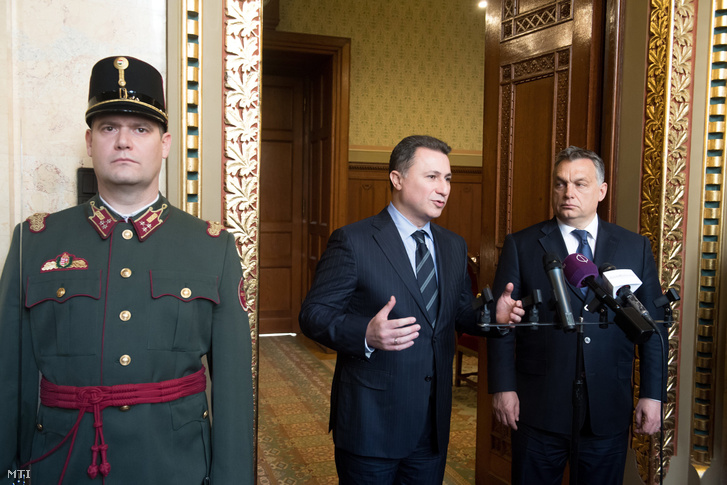State secretary: Gruevski "in need of special treatment"

További In English cikkek
As expected, almost all of today's questions concerned the former prime minister of Macedonia who fled to Hungary escaping his Macedonian jail sentence.
- Jobbik's MP likened the case to a cheap spy flick and said that Gruevski did not leave his country because of political, religious or any other persecution, disasters, or war, but simply to avoid justice. He inquired about who the person or ministry giving the command to transport Gruevski to Hungary was, and added that it is usually third-world dictators who prefer to hide out in each other's countries.
- LMP's MP announced at her press conference that the party is initiating a parliamentary committee investigation to examine the Gruevski-case, and they have filed charges for the crime of "aiding illegal migration". That offence is a much-criticized recent addition to the Hungarian penal code by Fidesz, meant to crack down on NGO-s that aid migrants. The section criminalizes helping anyone file an asylum application if they are ineligible for asylum (which of course becomes apparent only when the application in question is processed).
- Democratic Coalition's MP asked whether or not it was Putin who gave Orbán the command to help Gruevski.
- Párbeszéd thinks the Government is purposely keeping silent about who brought Gruevski to Hungary and added that nobody denied the information that it was the Hungarian authorities, while German press already published the names of the embassy employees that transported Gruevski across borders.

Balázs Orbán, the state secretary of the Prime Minister's Office answered the inquiries confirming that Gruevski indeed applied for asylum and he previously gave notice of that intention at a Hungarian embassy. Similar to the Chief of Staff's earlier statements, the state secretary did not fail to omit the information regarding the country where this embassy is. Concerning the people transporting Gruevski to Hungary, he said that Hungary did not help Gruevski leave Macedonia, but the secretary did not talk about Gruevski's transportation across Albania, Montenegro or Serbia. According to the state secretary, Gruevski had the right to seek asylum and had the right to enter Hungary and get his case heard.
Regarding why Gruevski is not detained in the transit zones with all other asylum seekers, the state secretary cited a passage of the Asylum Act that exempts a "person in need of special treatment" from being detained in the camps next to the border. The Government regards Gruevski as such because he was a prime minister for ten years.
However, the cited law defines the technical term "person in need of special treatment" as any person who is - upon individual examination - found to have special needs, and it goes on with an exemplifying list of situations warranting such a status:
"unaccompanied minors or defenceless people - especially minors or elderly people, people with disabilities, pregnant women, single parents with minors, or those who sustained torture, rape, or any other severe form of physical, psychological or sexual violence."
It is, of course, arguable that a convicted former prime minister would have a need for special treatment, but it is clear that the cited section was not made primarily for this purpose.
The other problem with the reasoning above is that as of now, Hungary is officially experiencing a "state of crisis caused by mass migration", a special legal order introduced by Fidesz that was prolonged in September by Viktor Orbán himself.
During this state of crisis, the application of certain regulations is suspended, one of which is the section cited by the state secretary, which is the reason why there are unaccompanied children, pregnant women, disabled people currently detained in the transit zones.
This article is a summary of the two original Hungarian articles published by Index.
(Cover picture: Former Macedonian Prime Minister Nikola Gruevski arrives at a courthouse in Skopje on October 5 2018. Photo: Robert Atanasovski / AFP)

Support the independent media!
The English section of Index is financed from donations.


